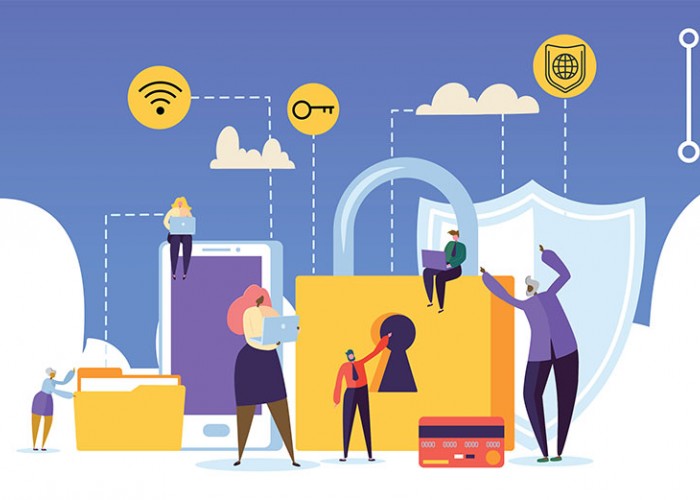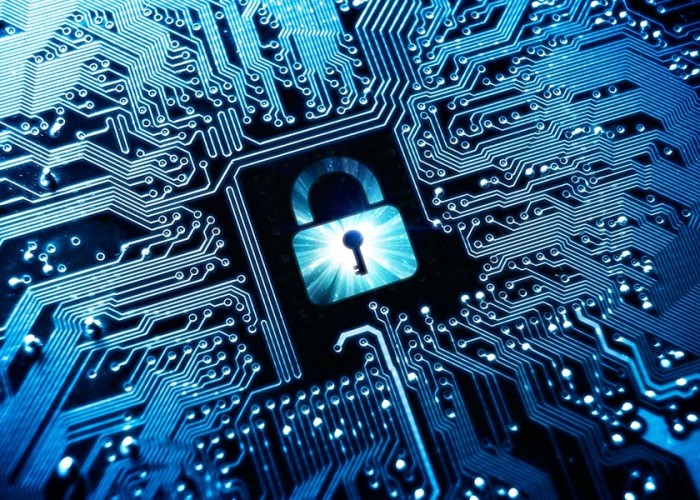Protect Your Cyber Health
4 tips to thwart cybercriminals
By Carmen Dietrich
We are certainly living in strange times. Like all of North Carolina’s 26 electric cooperatives, at Lumbee River EMC we have taken unprecedented steps to protect our members and employees from the spread of COVID-19. It seems the challenges may be far from over, but we are all adapting to the threats the pandemic presents, and learning to cope in the new — if temporary — normal.
In the same way, we must protect ourselves against another type of threat that is unfortunately all the more prominent during the uncertainty of a pandemic: cyber scams and hackers. Although we’d like to think cyber criminals wouldn’t bother reaching into our lives — our communities, businesses and even homes — the threat is, unfortunately, very real. With many in our communities facing financial hardships, more folks working from home than ever, and many turning to mobile banking for the first time, cybercriminals see opportunity.
But there’s good news. Just as we are identifying and implementing ways to protect our health during the pandemic, there are specific, proven ways to protect our “cyber health” while enjoying the conveniences that a more digitally connected life can bring.
Next month, October, is Cybersecurity Awareness Month, a national effort to push back against the hackers out there. Recognizing that all personal devices are potentially vulnerable, including our home computers and smartphones, the initiative stresses: “If You Connect It, Protect It.”
Here are four basic tips to put into practice today that will go far in thwarting opportunistic cybercriminals:
1 Use strong passwords
You’d be surprised how many people choose “password” as the secret word to protect their digital life, and hackers know it. The best passwords are at least eight characters long and include different types of characters. Try using a memorable verse from your favorite song and adding a few numbers and special characters ($ ! _ &). If you are like most people, remembering all your passwords is a challenge. Keeping passwords in a notebook might be more secure than using the same password for everything, depending on how secure and hidden those notes are from others.
2 Install software updates
Your applications (apps) and operating systems will periodically send updates. Install them — they often include protections against the latest security threats. But remember, those updates come from the apps and not from emails or social media notices. An email containing an update may be a scam. Instead of clicking on the link, go to the app’s website to see if there really are updates available.
3 Use “two-factor authentication”
That phrase is just a fancy way of describing a technique that adds an extra layer of security to a password. One example is with online banking. If you try to connect with your bank on a computer, it may text a code number to your phone that you type in to complete the sign-in process for your account. These second factors are extra secure because they are tied to 1) something you have, like your phone to receive a passcode, and 2) something you know, like a password or security question. So if given the option, use them!
4 Think before you click
Be cautious of any offer or link that comes through the internet, whether by email, social media or a “pop-up window,” or even a phone call instructing you to get online. Don’t click on a link unless you know for certain what it is. Even emails from friends should be suspect — hackers can impersonate someone you know to send a computer virus through a link or an attachment. If you have any doubt, whether it’s a link to a software update or an attachment to a funny cat video, give the sender a phone call to find out if they really sent it or if it’s a scam.
One more word of caution against scams: None of North Carolina’s 26 electric cooperatives would ever call their members to obtain account or personal information. If you ever doubt the identity of someone claiming to represent your electric cooperative, please call your cooperative’s office using the phone number listed on your bill or on the cooperative’s website.
With a little preparation and awareness of what’s out there, we can stand firm against would-be threats. Whether protecting your physical or cyber health, be safe.
About the Author
Carmen Dietrich is President and CEO for Lumbee River EMC in Pembroke.-
Preventing Cyber Sabotage
-
Share this story:





